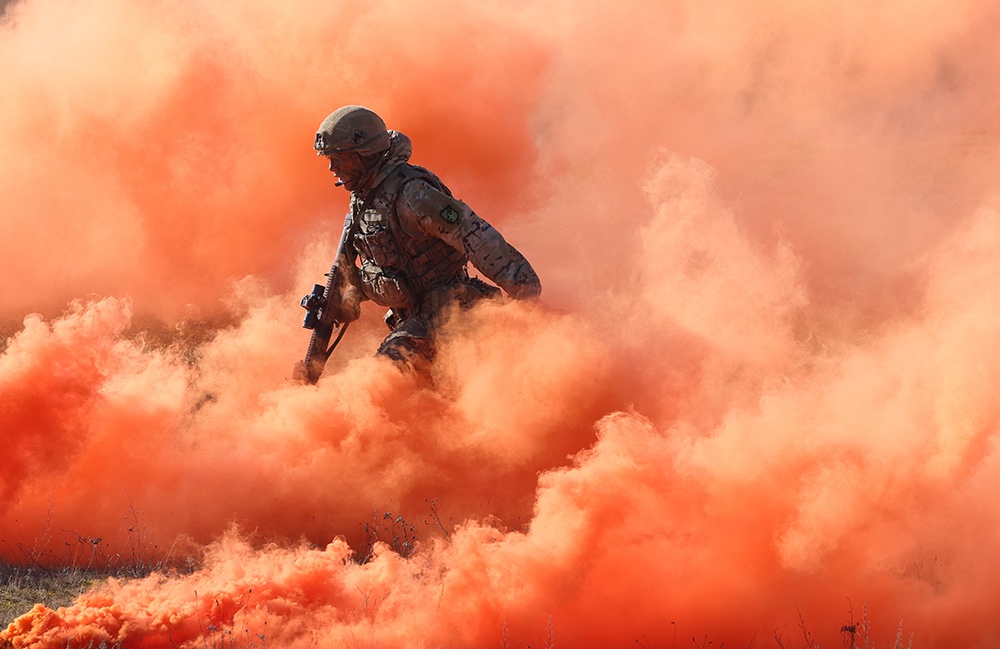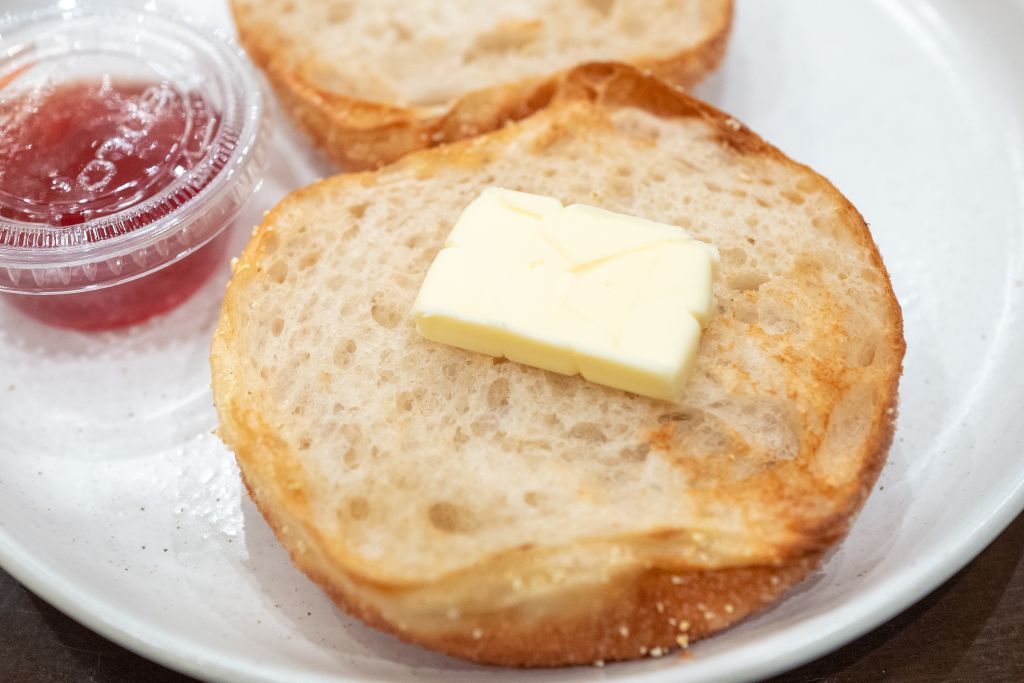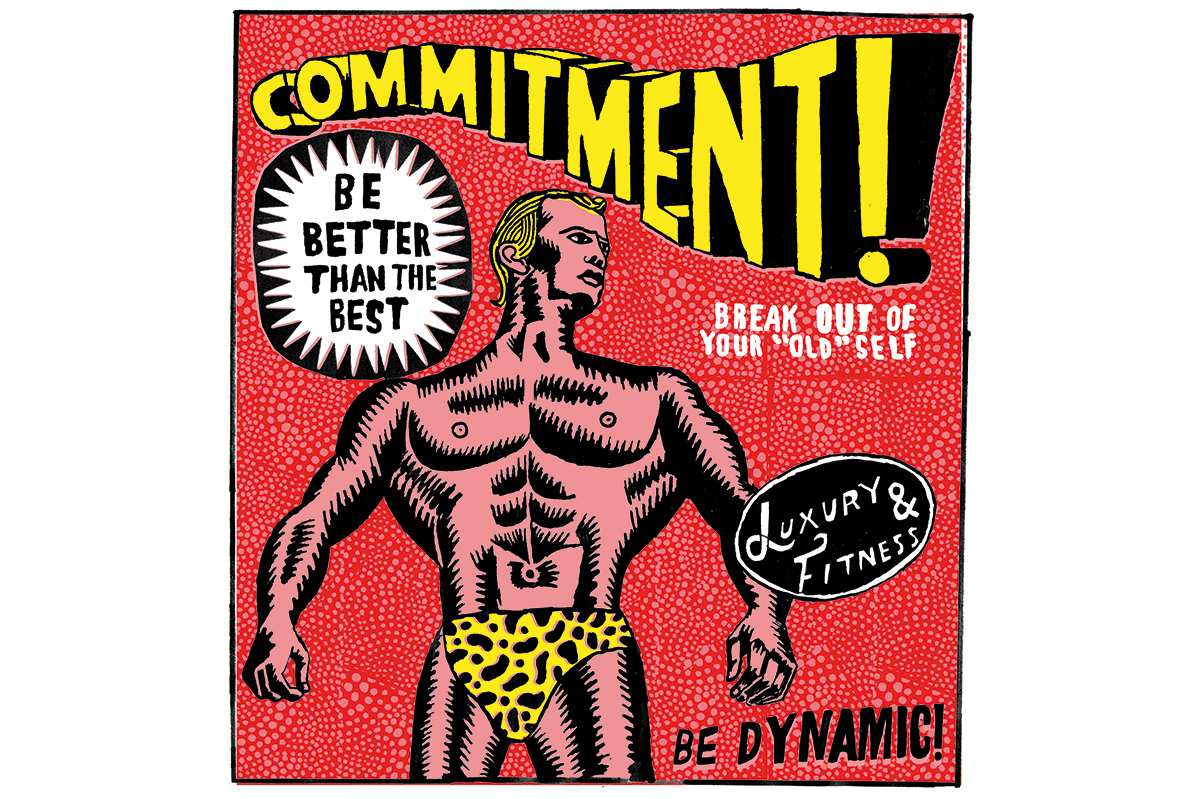My first memory of my Aunt Mary involves a rattlesnake and a meat cleaver. I was maybe seven years old when my cousins and I found the rattlesnake near a stack of cardboard boxes in her garage. It was barely 9 a.m. and we ran inside to find her already in full makeup and a silk housecoat, a cigarette dangling from her lips. She grabbed the cleaver and walked up to the recoiling viper — as entranced by her severe face and big red hair as we were — and chopped its head off with a nimble clank.
‘Wait till it stops wigglin’, then go toss it over yonder,’ she said through a cloud of smoke, and motioned toward an embankment at the end of the driveway.
My last memory is from a little over a decade later. Mary’s gaunt face is bathed in golden light; she’s lying on a stretcher atop a Tennessee hillside where the family has taken her to watch the sunset one last time. Her head is wrapped in a turban and she asks if we think she’ll make it into Heaven. Our valiantly sinful aunt then got baptized and died.
Only a couple years earlier it was my Uncle Joe. Like Mary’s, his smoking cancer spread from his lungs to his brain and everywhere else. Those outside the nicotine club may be surprised that a firsthand view of smoking’s horrific outcome rarely impels giving it up. Firsthand twice, in my case.
This is particularly the case if you’re Southern. Death, however untimely and avoidable, is just one of those things in the Appalachian mindset, which expects life to be a parade of loss and hardship pockmarked, if you’re lucky, by a good deal of laughter through the tears.
And the occasional pleasure, of course. I continue to believe there are few things more wonderful than cigarettes, not least in their power to repel the most judgmental people in any room. The most splendid misanthropes tend to be smokers. That’s one reason I’ve smoked so long: it’s offensive, lowbrow, uncouth, all traits I appreciate in others. Like popping your gum on a crowded subway, a cigarette is a tiny fuck you to anyone who wishes to control you, or think they know how you ought to live. Cancer sticks, say the millennial dodos, repellently obsessed with their personal health. Freedom sticks, I’ve always corrected.
Calling in the Ministry of Death is rarely an effective way to compel a change in behavior. Nanny states may henpeck their citizens all day long with pictures of blackened lungs and decayed teeth on cigarette packs and still not get a single person to stop. Vice taxes designed to further gouge the poor in places like New York City, where a pack of cigarettes is rapidly approaching $20, are equally sadistic and futile.
So death and taxes don’t change a thing, and neither will shaming. Sure, it’s great fun harassing the fats into losing weight but that’s just knee-jerk punchback at the so called body positivity movement. For those who giggle ‘fat-shaming works’, I’d wager it doesn’t — shaming just builds resentment, though if revenge is the best motivation for getting a hot body, I may be wrong there.
For the imminently destructive addictions — booze, sex, gambling, drugs — the Anonymous folks preach human powerlessness and heavy reliance on the ‘higher power’ of one’s choosing. It used to be the Christian god that Aunt Mary knew but according to the rules it can be anything from ‘the Universe’ to horoscopes, to a chicken wing, to Bev with the eccentric fingernails down at the Piggly Wiggly.
But nicotine addiction tends to lack the sort of urgency that requires bringing God into the equation. Yes, I know, my body is a temple of the Holy Spirit, but smoking still feels like one of those surmountable things that doesn’t warrant bothering the Creator.
It turns out another person does the trick. A friend clued me in to the only thing in the world that will get you to quit smoking: love.
‘As soon as you find someone you love enough, who hates it, you’ll be surprised how easy it is to quit,’ he said, a year into kicking the habit himself — smoking a cigarette he’d bummed off me. (Going from a pack a day to one or two smokes a month still counts as quitting, and I don’t want to hear anyone say otherwise).
For my generation — the most selfish and alone in history — to admit relinquishing emotional control to another person can be a social faux pas and a nearly unleapable ditch. From the strong, independent bed-hopping feminist to the island-unto himself libertarian, a conviction that the only validation that matters is one’s own spans all political divides.
That’s how I’ve spent most of my life. But then children come along, in my case a niece, or a partner (excuse the term), and you remember Aunt Mary watching the sun dip behind the blue mountains or Uncle Joe clutching your hand in the hospital room, trying to tell you something though he can’t speak and trembles violently trying, and you think, I can’t put someone else through that.
If you’re lucky, you stumble upon people who’d like you around for a long time. You realize friends, or ‘chosen family’ as my pathetic generation might say, are never it. You’re gripped by fear and shame at the thought of abandoning them as they grow up or grow old alongside you. I told this to someone I love recently, as though it were something new, in a conversation about cigarettes. ‘I guess,’ he shrugged. ‘Really, I just can’t stand the smell.’
This article was originally published in The Spectator’s April 2021 US edition.

























